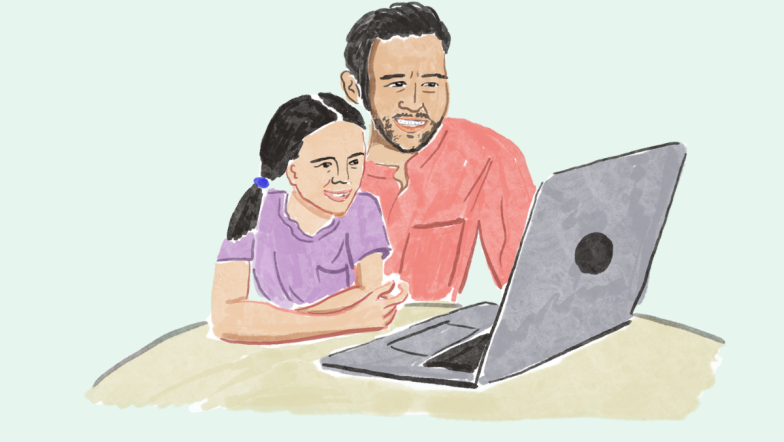Protecting older people from financial abuse with stronger, more consistent laws
6 May 2024
Justice Connect has called on the Commonwealth Government to work with the states to improve the consistency of Financial Enduring Power of Attorney laws across Australia.
There are currently more legal needs related to older people than ever. Not only does Australia have an ageing population, but the rising cost of living pressures in the community are also resulting in an increasing risk of financial elder abuse. The National Elder Abuse Prevalence Study has told us that having a Financial Enduring Powers of Attorney (EPOA) in place is associated with lower reports of elder abuse.
The Commonwealth Attorney Generals’ Department (AGD) is currently considering how to achieve greater consistency in laws across Australia relating to EPOAs. Justice Connect made a submission in response to a Consultation Paper published by the AGD on this topic, in which we argue that there is significant potential for stronger measures to be enacted through consistent EPOA laws across all jurisdictions so that older Australians are better protected from financial abuse.
Read our submission:
Our Seniors Law program focuses on financial elder abuse, which means that making and revoking EPOAs forms a significant proportion of our targeted work. Through our 15 years of experience in providing specialised legal services to older people in both Victoria and New South Wales, we have seen the grave consequences for older Australians where an inappropriate Attorney is appointed.
Guided by the principle that consistency across all Australian jurisdictions in financial EPOAs would create a more effective response to elder abuse, our submission makes the following key recommendations:
1. Strengthening witness requirements for EPOAs
Having strengthened witnessing requirements would provide an important safeguard against financial abuse, and could be achieved by:
- Prescribing that only appropriately qualified professionals should be permitted to be an ‘authorised witness’ for the making and revocation of an EPOA.
- Requiring that an Attorney’s acceptance of an EPOA also be witnessed by an appropriately qualified witness.
Authorised witnesses for EPOAs
We recommend that an ‘authorised witness’ to both the making and revocation of EPOAs should be limited to ‘appropriately qualified professionals’ who can advise the Principal about the effect of the document and the risk of financial abuse should it fall into the wrong hands. We consider Australian legal practitioners, registrars of Local Courts, foreign lawyers, or approved Trustee and Guardian employees to be ‘appropriately qualified’.
Having an appropriately qualified professional witness the execution of an EPOA ensures the Principal receives specialised advice tailored to their personal circumstances, including advice about the risks of abuse associated with making an EPOA. Restricting witness eligibility to professionals with appropriate expertise respects the gravity of the EPOA, and the significance of the responsibility attached to the role of Attorney.
Witness to an Attorney’s acceptance
When an Attorney accepts their appointment, their acceptance should also be witnessed by an ‘appropriately qualified professional’ (as defined above). This could be the same person who witnesses the Principal’s signature, and could be done remotely if in-person access is an issue and an EPOA needs to be put in place urgently.
Given the significance of the role and the risk of financial elder abuse, we consider it important that a qualified person witness the attorney’s acceptance.
When they witness a signature, the ‘appropriately qualified professional’ should:
- Explain to the Attorney the duties and obligations attached to the role, and
- Certify that the Attorney appeared to understand their responsibilities.
The Attorney’s statement of acceptance should include the fact that they have had the duties and responsibilities of the role explained to them by the authorised witness.
Together, our proposals will act as a safeguard against an Attorney subsequently claiming they were unaware of their obligations, in an attempt to evade responsibility for perpetrating elder abuse.
2. Minimising and preventing an EPOA being used to perpetrate abuse
To further protect against an EPOA being used to perpetrate financial abuse, we additionally recommend that:
- Only a court or tribunal should be able to authorise transactions over a specified limit (such as $10,000) proposed by an Attorney that would result in a conflict of interest.
- Tribunal-based compensation schemes for Principals should be instituted in all jurisdictions.
- Training for Attorneys on their duties and obligations should be compulsory.
3. Funding free services to protect older people from financial abuse
To counter difficulties in accessing legal help for the making and revocation of EPOAs, sustainable funding should be increased and directed to free legal services across Australia that provide specialised legal support to older people to execute EPOAs and secure peace of mind they are protected from financial abuse.
There is ample opportunity for the Commonwealth Government to improve the way we administer and regulate EPOAs to safeguard older Australians from financial abuse. By strengthening witnessing requirements, minimising opportunities to perpetrate abuse, and sustainably funding free legal services, we can lay the foundation for a national system that consistently protects the financial interests of Australians as they age.

